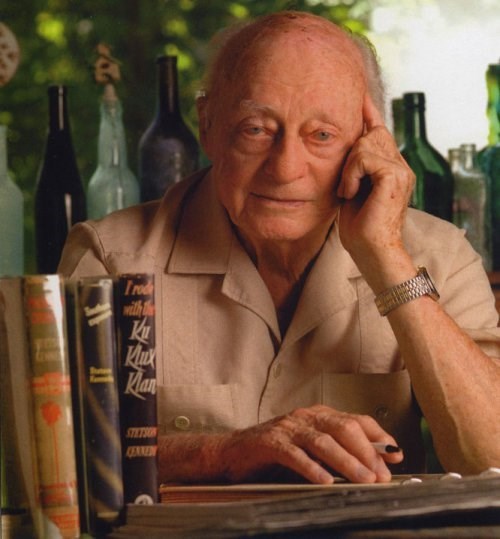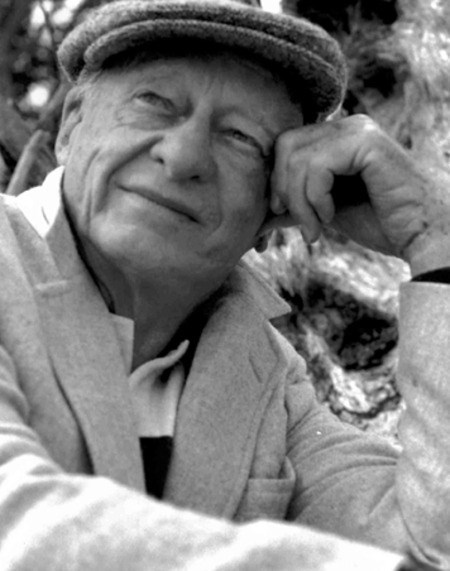 |
| Stetson Kennedy |
Today, stories transmitted through various mediums of communication continuously mold the image of the ideal hero. He or she, through personal determination, often makes sacrifices in order to save the lives of others or pursue some sort of higher cause. When first venturing to come up with a hero, I thought about family figures -- my mother, father, grandfather, etc. -- who have made significant impacts on my life. Anyhow, in an attempt to avoid repeating previous essays and projects on similar topics, I began to contemplate the undertakings of historical figures- especially the lesser known ones. Among the plethora of figures I call heroes, Stetson Kennedy stands out for his advocacy of civil rights and audacity to defy malicious institutions.
Following World War II, Kennedy devoted his life to the undermining of racial hate mongering circles, including the Klu Klux Klan. He operated as an undercover investigative journalist and rose to the rank of Kleagle--an officer who recruits up and coming members in the Klan. Having been raised in Jacksonville, Florida, Kennedy was predisposed to the acidic culture of the South. Rather than accepting it, however, he privately challenged the perspective of his forefathers in order to see its ultimate demise. At first, Kennedy encountered challenges regarding a viable method for the penetration of the Klan's foundation, as he attempted to dismantle a subdivision at a time. In the guise of John S. Perkins, encyclopedia salesman, he began amassing information. This contained the inner workings of the organization, ranging from secret handshakes to code words. Nevertheless, with little to no success after a considerable amount of time, Kennedy adapted his approach. Through the radio, Kennedy created a serial that pitted Superman against the Klan, and it became an instant success. In the process, millions of children became aware of the organization's secret codes, thereby stripping the organization of the sense of mystique that directly fueled its intimidation factor. This sense of innovation, coupled with the motivation to drop a particular strategy and take it in another direction, truly highlights Kennedy's heroic qualities. Additionally, Kennedy did all this in the face of suffering. He and his colleagues personally witnessed murders, not to mention placed themselves in jeopardy (as there were a few white lynchings that occurred as well), and continued with their cause. Subsequent to the dissolution of the Klan -- at least in comparison to its most threatening state in the mid-twentieth century -- Kennedy wrote a series of books, including Southern Exposure, Jim Crow Guide to the U.S.A., and The Klan Unmasked. Moreover, he was a founding member of the Florida Folklore Society, receiving the Florida Folk Heritage Award and the Florida Governor's Heartland Award.
In the end, Stetson Kennedy infringed upon American society's white supremacist norms at a time when organizations such as the Klu Klux Klan persecuted African-Americans through intimidation and brutality. He directed his ambition and creativity into the role of a mere encyclopedia salesman, gaining and dispersing secret information via the radio. In effect, Kennedy successfully crippled an immense obstacle in the way of African-American equality, paving the way for the Civil Rights movement the following decade.
 |
| Folklorist, Writer, and Activist Stetson Kennedy, 2008 |
Page created on 8/10/2015 12:00:00 AM
Last edited 1/6/2017 4:29:11 PM
